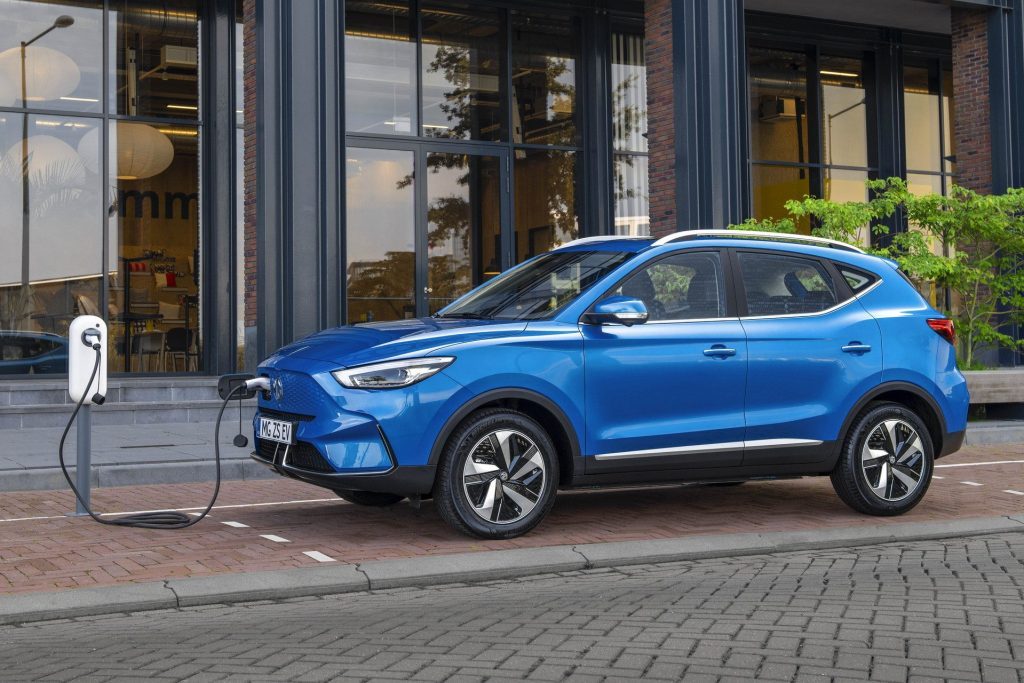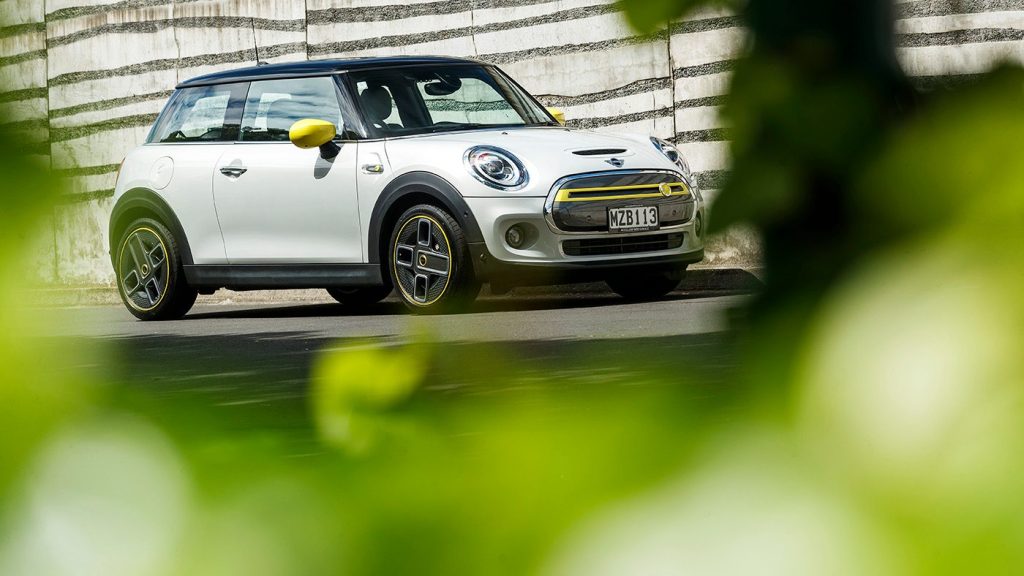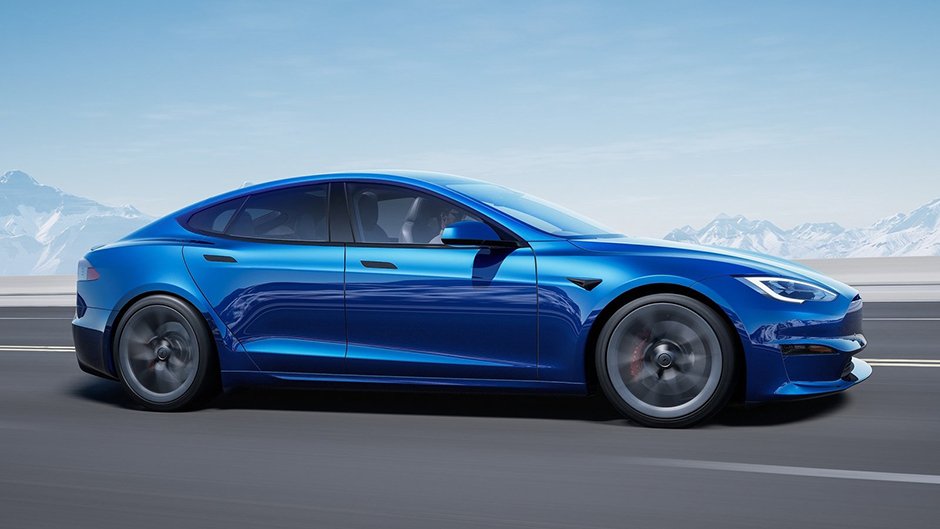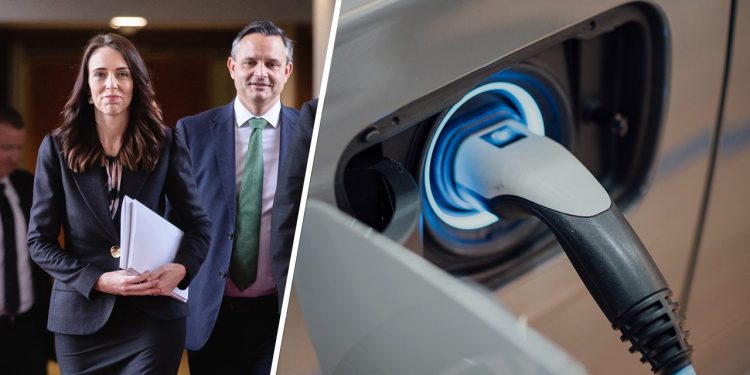Confirmed: Govt wants 30% of NZ’s cars to be electric by 2035
Words: Matthew Hansen
The government has announced new targets for electric vehicle uptake in New Zealand via a consultation document; the main goal being to have 30 per cent of the country’s entire light-vehicle fleet (new and used) be electric by 2035.
This represents one of four main targets the government has outlayed in today’s announcement. The other three being a reduction in the amount of kilometres travelled by 20 per cent by 2035, reduction of the emissions created by freight transport by 25 per cent by 2035, and to reduce the emissions intensity of transport fuel by 15 per cent by 2035.
The government aims to meet these targets by introducing further projects and incentives designed to make electric vehicles more viable and accessible to more people, while also making alternatives like public transport more attractive.

Among the ideas on the table is the introduction of a national EV infrastructure plan, a scrappage scheme for older vehicles, and setting a maximum CO2 limit for internal combustion imports. It’s also evaluating making the cost of public transport cheaper, and it’s investigating the role biofuels might play in reducing emissions in freight transport.
The consultation document has already come under scrutiny from some due to the amount of gaps in its various proposed ideas, with early reports noting that many of the ideas in the document aren’t costed or measured for feasibility. Stuff reports that the measures in today’s announcements could reduce annual emissions by between 2.6 and 5.1 million tonnes. New Zealand produces approximately 80 million tonnes of emissions per year.
Read more: New Zealand’s cheapest electric car gets updated
Some consider the consultation document’s aims to be less ambitious than previous goals laid out by the government, particularly considering the its declaration of a climate emergency. In particular it’s drawn ire from those seeking a reduction of emissions from the agriculture sector. Industries and the public will be able to have their say on the consultation document in due course.
The goals fall short of being a full-on ban on the sale of new internal combustion vehicles, which will likely be welcome news to the industry and to car enthusiasts alike. Bans on the sale of new petrol and diesel vehicles are already confirmed for the likes of the UK, which will implement its ban from 2030 onwards.

The announcement is the latest in a series of green-vehicle initiatives pushed forwards by the current government, following on from the Clean Car Standard and Clean Car Discount schemes. The two schemes have had a mixed reception, with the former recently coming under fire from the Motor Industry Association.
The latter, however, appears to have been a success. Since the first discounts became available in July, electric vehicle uptake has increased; with September just gone being the most significant month for local plug-in vehicle registrations ever recorded. 2,282 new and used EVs were registered (representing approximately 12.5 per cent of monthly sales), with the Tesla Model 3 the second best-selling new vehicle overall behind the Ford Ranger.
The government’s announcement has already been welcomed by electric vehicle advocacy group Drive Electric. Its chair, Mark Gilbert, notes that New Zealand’s future could look a lot like the UK’s present, where over 150 electrified vehicles are currently offered, with plug-ins making up 21.7 per cent of the region’s sales in September.

“That will take a lot of doing, but it’s possible, and for the climate, definitely preferable,” he said. “To achieve these numbers and more, we will need supporting policies, many of which we have advocated for and are listed in the consultation document. Sure, more detail is needed, but the ambition is there and progress has started.
“When taken together, we are starting to send signals to the global automotive industry that New Zealand is serious about electrification. That’s how we will get a supply of these vehicles.
“The faster we can get a comprehensive plan in place, the faster we build the confidence of importers and consumers. […] We will be engaging our members on the package of policies over the next few weeks and submitting. But be very clear – the future for vehicles in New Zealand is electric.”
The current Labour Government has a mixed history when it comes to electric vehicle pledges. Having twice pledged to switch the government fleet to electric vehicles (the latter pledge giving a 2025 deadline), a Newsroom report published last week confirmed that just 49 per cent of the fleet would be capable of making the switch.





